This post contains an audio recording (above) of a public Zoom call held on July 20, 2023 to update Americans on select commitments in the 5th U.S. National Action Plan for Open Government, more than six months after the White House published the plan online at the end of December 2022.
Officials at the White House Office of Management and Budget (OMB) and the Office of Information and Regulatory Affairs (OIRA) presented on their work on commitments to make the voices of the public heard.
The first half of the forum discussed new guidance on broadening public engagement in the regulatory process issued on July 2019, followed by questions about developing a framework for engagement for use across the federal government. OMB requests feedback on the questions below to go to publicparticipation@omb.eop.gov.
- Should the Federal government adopt a common framework for participation and engagement? What might such a framework include?
- How would you design an ideal process to develop such a framework?
- What points in the process (e.g., outline, first draft, final draft) are most important for public engagement?
- What engagement formats or activities would be most effective for developing a Federal framework?
- What might the Federal government do to make it easier for people to participate?
Our view? OMB should go back to the future. Review the Public Participation Playbook the Obama White House developed with the public in 2015, as part of the US government’s efforts to open government. Then, working in collaboration with the Office of Public Engagement, host a series of open government roundtables with the nation’s leading authorities on civic engagement and public participation in 2023 and 2024 that inform guidance for the federal government.
Officials might review what approaches were effective in engaging Americans with public health information in the pandemic, voting information, and extreme weather — and which were not.
That work should be part of a new open government plans at OMB and OSTP that are hosted at whitehouse.gov/open, showing President Biden’s commitment to government transparency like whitehouse.gov/equity shows his administration’s commitment to equity.
Screenshots of the presentation follow. (Our apologies: we missed slide 3 and 9.)



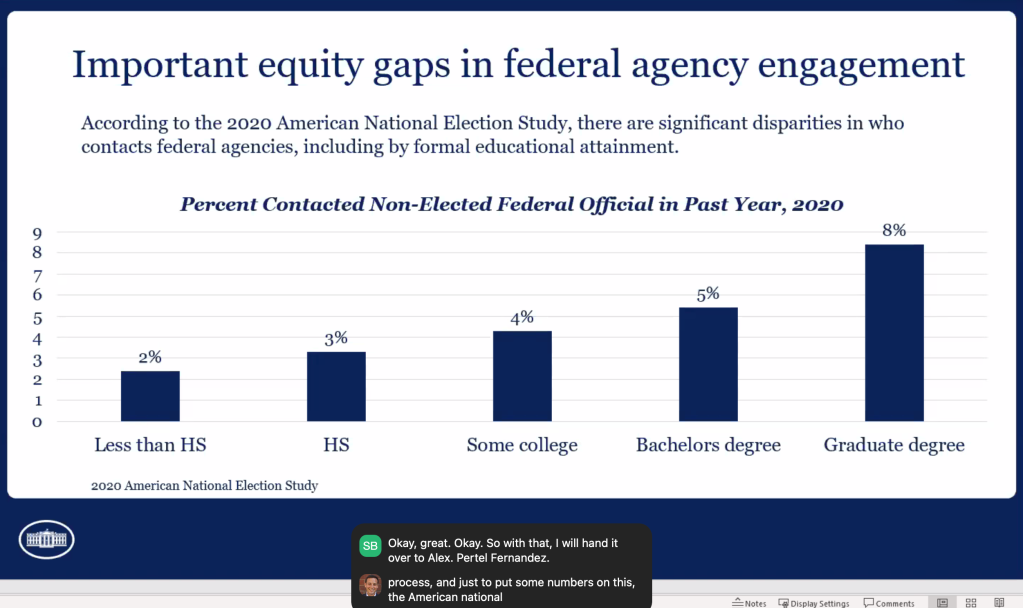
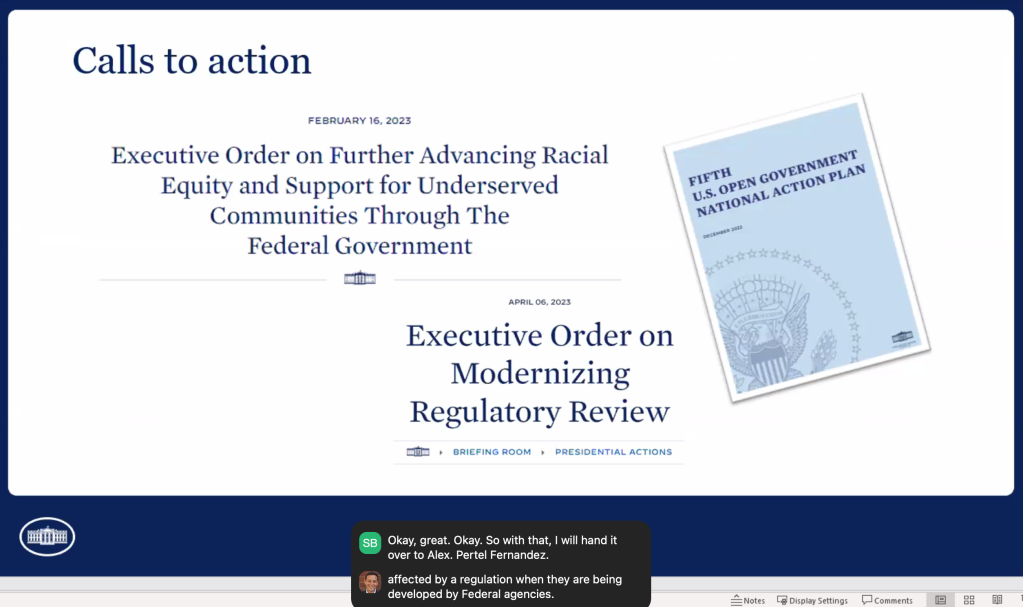




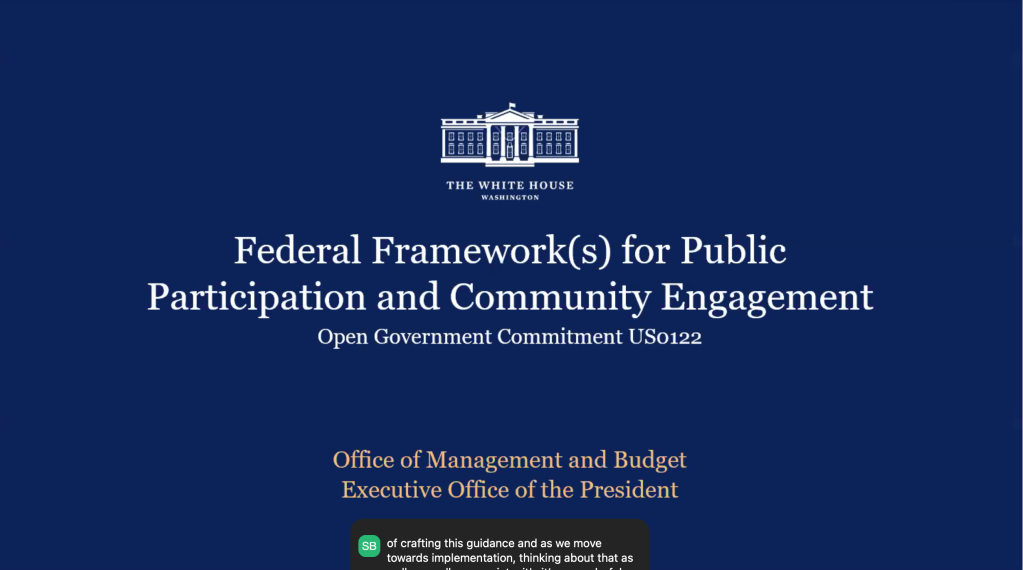

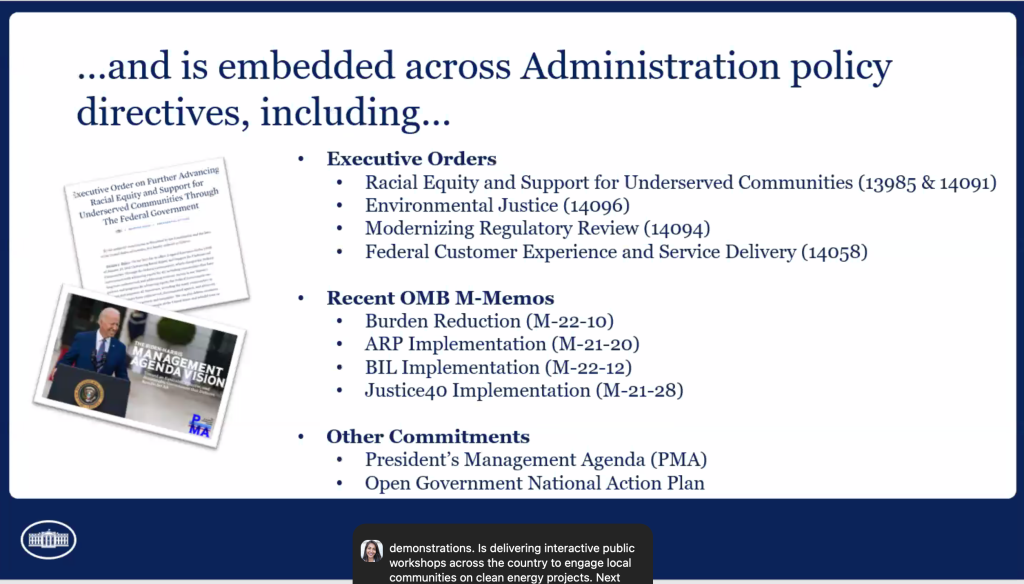
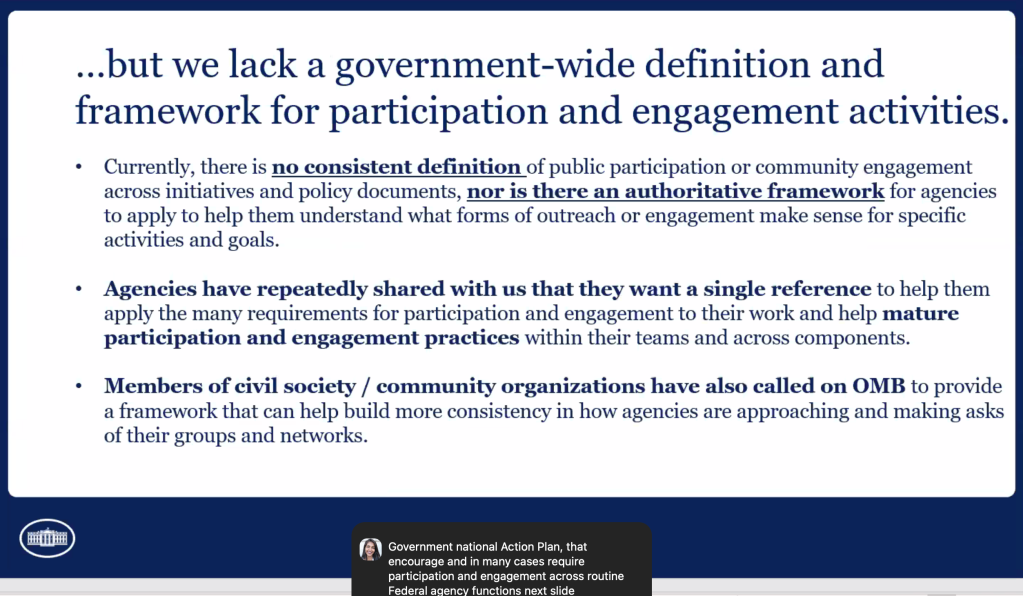
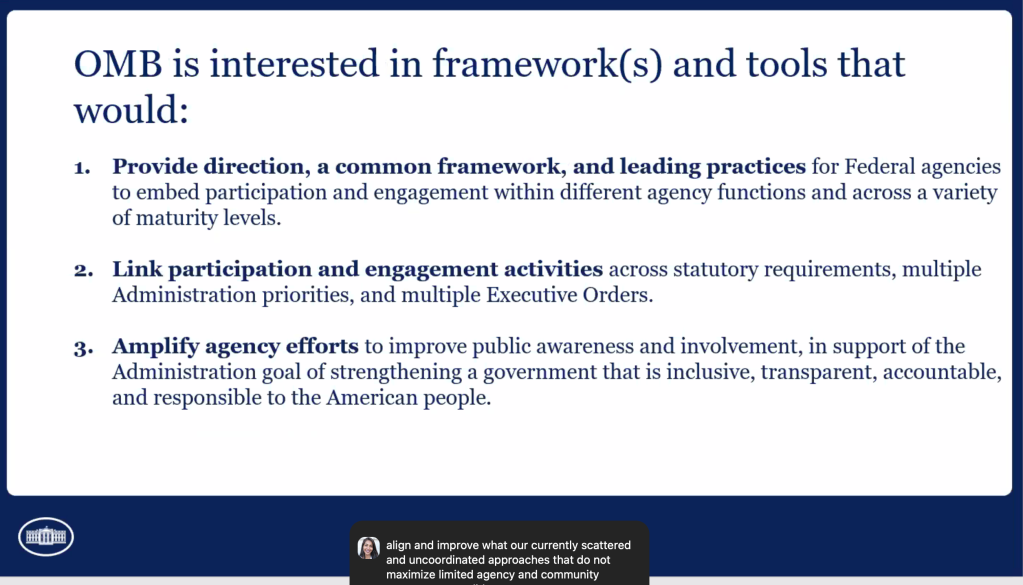
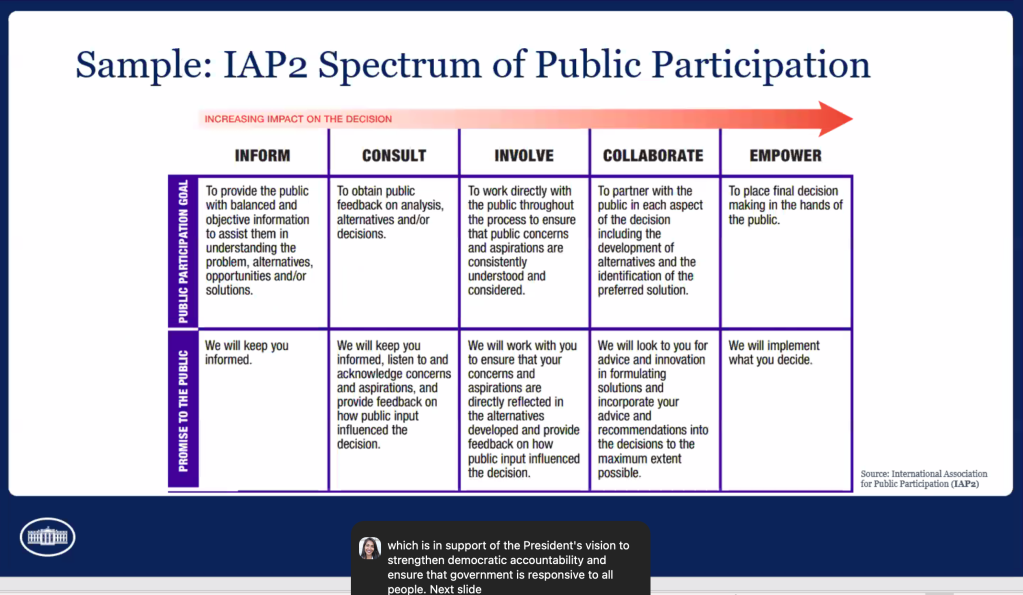



Should this White House publish slides or notes from this public session on its work implementing open government commitments, we will update this post.
(Officials said that the session was not recorded, so we are providing the above resources for the Americans who were unable to attend or who did not hear about this opportunity to engage with OMB and OIRA about broadening public engagement because this administration did not engage the public. As you’ll hear in the recording, the public participants in this listening session offered praise for the guidance and suggestions for improvement tempered with critiques of the opaque process, poor communications about the forum, and dissatisfaction at the lack of a cohesive way to track and understand this administration’s work on government transparency and accountability.)







